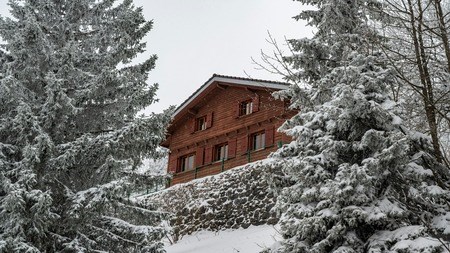South Africans are buying holiday homes in popular destinations like Dubai, Portugal, Spain, Namibia, and Mauritius. Dubai is particularly noted for its growing global prominence and buoyant rental market, meaning there are good returns if renting it out. Samuel Seeff, chairman of the Seeff Property Group (https://www.seeff.com/), which has a vast international footprint and presence, provides the answers to the most commonly asked questions about international holiday home purchases.
Q1: Why is purchasing a holiday home outside of SA a good or bad idea?
This will depend on the motivation of the buyer. For some, it is the opportunity to invest in a lucrative market such as Dubai, thus enabling the buyer/investor to diversify and spread their investments. For others, it is with the view to obtaining a second residency/Plan B option, whether they want to move permanently or just want to enjoy visa-free travel. If you are buying a holiday home, then one would assume that it is a destination that you want to go to on a regular basis; alternatively, it is more likely that it will be an investment for the rental market.
Therefore, on the positive side, it offers a guaranteed private retreat for your holidays, potentially a diversified investment against Rand volatility, and an opportunity to immerse yourself in a different culture. However, drawbacks include the ability to oversee the property, as well as costs associated with the property ownership, such as property management, insurance, potential tax implications, etc.
Purchasing in familiar destinations such as Dubai, Mauritius, or Namibia would probably be better advised compared to areas that you may not be familiar with.
Q2: If the property is only used once a year by the owners, is it easy and profitable to rent out the property during the vacant period, and who should manage bookings and contracts?
Yes, in some destinations you can easily find tenants, but this is not the general case, and it depends on where you buy your property. It’s very important that you do your due diligence because not all properties are able to be rented out all year round, and in many areas, there could be a surplus of holiday properties outside of the busy seasonal periods, which could leave you out of pocket if you were counting on the rental income to help you pay for the property. That said, if you invest in a busy tourist/holiday area, you might be able to earn a lucrative rental income during the busy periods.
Profitability will depend on the location, property type, local rental market rates, and occupancy levels.
It is advisable to appoint a professional local property management company. They manage bookings, guest communication, cleaning, maintenance, and contracts, which from afar is challenging. They can also handle marketing, bookings, guest screening, check-ins/outs, cleaning, and maintenance and ensure compliance with local rental laws, taking a commission from your rental income.
Q3: What are the budget considerations and forex navigations in general?
You need to know how you will finance the purchase. If you are paying in cash (whether in part or just a deposit), you also need to be aware of the exchange control regulations. You can usually take out of South Africa about R11-million annually (R1-million as your discretionary allowance and another R10-million as the annual allowance).
In many instances you can secure financing in the international country but may need to put down a substantial deposit of 20%-60% of the price. Interest rates also vary. The typical client vetting in terms of money laundering legislation, etc., will be required.
Additional costs must also be budgeted for, including the cost of transfer, any renovations and furnishings, as well as additional ongoing property costs.
Most of the international destinations, such as Mauritius, Dubai, and Namibia, permit you to freely repatriate your capital and profit on resale with no Capital Gains Tax (CGT) if it is a private property, but it may be subject to South African taxes such as CGT once you bring the funds back into the country. Similarly, rental income may be subject to tax, but you will be able to claim certain deductions such as interest on a loan, maintenance and repairs, marketing costs, and so on.
Q4: What would you recommend as the best steps to follow when purchasing such a property?
Decide what type of property you want to invest in, the destination, and the price range.
Contact a credible estate agency to look at listings and get more information on what is required, the likely total cost scenario, information about rentals, etc.
Thoroughly research the location and property market to ensure you make a good investment and don’t end up with difficulties.
Ensure you are financially able to fund the property purchase and the costs of the loan if applicable, any potential maintenance, and that you are able to cover the costs if the property stands empty.
Ensure that you contact a local rental specialist or someone who can assist with managing the property on your behalf, especially if you are unable to do so.
Consider whether you want to view the property options yourself, or if you are familiar with the destination, you could consider purchasing it “sight unseen,” but that is a risk if you do not know the area, the properties, or the agency that you work with.
A property inspection is always critical; if you can’t do it yourself, then you must work with a trusted agent, preferably with a local brand such as Seeff with offices or a networking arrangement in the destination country or area.
Research and verify the process. Ensure you have legal representation who can check the contracts for you.
Ensure you request all the necessary property documents (title deed, building plans, municipal clearances) and have your foreign lawyer review them rigorously.
You must comply with all legal requirements, including FICA/FIA documents for anti-money laundering checks.
Q5: Where is the application made for finance if required?
If finance is required for purchasing a property in a foreign country, the application for a mortgage is almost exclusively made in the country where the property is located. South African banks generally do not provide home loans for properties outside South Africa.
You would approach a bank in the foreign country (e.g., a Namibian bank for a Namibian property) that offers mortgage products to non-residents, understanding that they often require a larger deposit and stringent financial documentation.
In destinations such as Dubai, most of the developments offer attractive payment plans.
Q6: Red flags and challenges?
These could include dealing with unregistered or unethical agents. Requests for cash payments or unusual banking details are also a red flag, as are unclear ownership or property title and significant undisclosed structural defects.
Additional challenges involve navigating unfamiliar legal systems and languages, potential currency fluctuations impacting costs and returns, managing the property from a distance, understanding and complying with foreign tax obligations, the difficulty of obtaining cross-border financing, often requiring a substantial cash deposit, and dealing with different banking requirements.
It is highly recommended that you do proper due diligence and only invest in areas where you are certain you are dealing with a credible agency and have full knowledge and confidence in the rental market prospects, such as being able to quickly sell the property if necessary, and that you are able to get your money plus any profits back.




